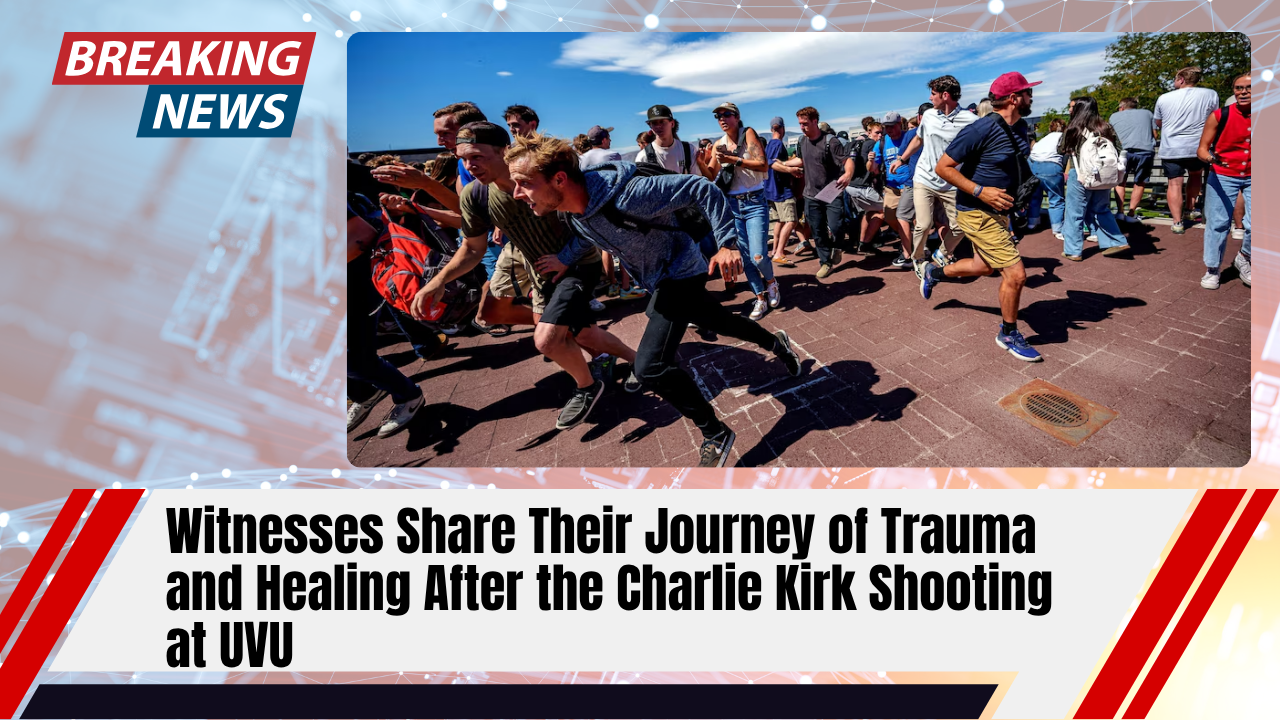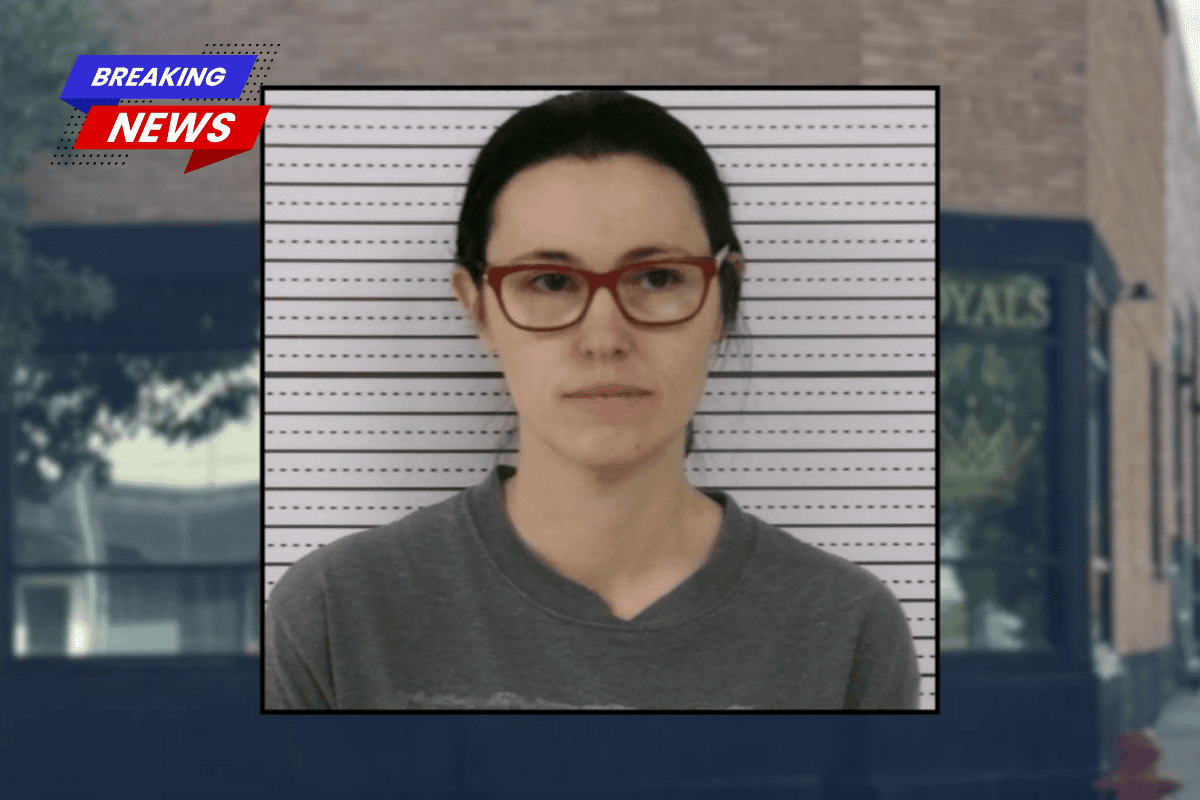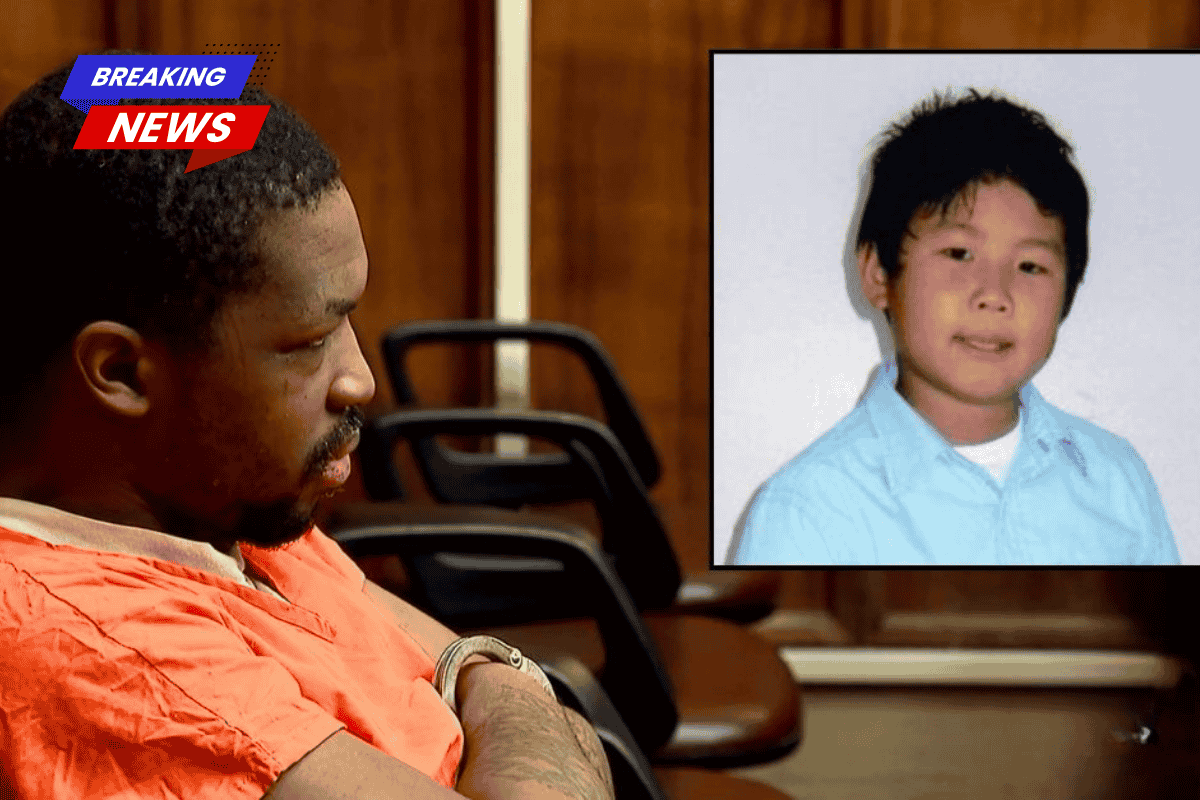More than six weeks after the deadly shooting at Utah Valley University, four people who were present that day came together to talk about the moments that changed their lives. Each of them carries emotional scars from what they witnessed, and together, they are finding ways to heal.
Jason Behunin, Christian Overton, Kurt Liechty, and 15-year-old Carter Lloyd didn’t know one another before September 10, 2025. But since that day, they’ve been bound by a shared memory they can’t erase. Behunin said the trauma is still heavy. “I kind of buried it down. I’m still processing it, I haven’t gotten over it. It’s probably something I’ll never get over,” he said.
Carter, a high school student, said the impact has lingered in her daily life. “It was hard the first two weeks. I still think about it to this day. Sometimes it’s the first thing I think about in the morning,” she shared. “If there’s a loud sound in my classroom, I don’t do good with those.” She’s been attending therapy and leaning on friends and family for support. “Processing is really hard because things that were normal to you aren’t very normal anymore,” she added.
Overton, who was at the event with his teenage son, said healing has been slow. He created a Facebook support group for others who witnessed the shooting. “I’m here for him when he’s ready to talk,” he said about his son. “Right now, it’s still tough to deal with.” He described how the memory still resurfaces. “I like to think I’m pretty resilient; however, it does come back unexpectedly.”
Liechty, a retired law enforcement officer and combat veteran, recalled being overcome by anger in the days that followed. “I couldn’t sleep until 2 a.m. People were saying things online that weren’t true. This is my school. This is my kids’ school,” he said. The misinformation, he explained, added another layer of frustration and grief.
Behunin, a retired corrections officer, said he still struggles whenever he drives past the university. “I just can’t look at UVU anymore,” he said. “It’s hard to look because you remember what happened there.”
All four described the chaos and confusion when the shooting began during the Charlie Kirk event. Carter remembered seeing the aftermath up close. “I see his body getting carried out, covered in blood,” she said. “You just feel absolute terror. I remember thinking, ‘Am I going to die, or are they going to keep on shooting?’”
For Liechty, instincts kicked in. “Our first thought was, this is a mass shooting. There’s going to be more shots,” he said. Overton described the moment vividly. “It was like somebody lit off a firework. I looked back toward Charlie and saw the hole in his neck.” Behunin recalled how quickly panic spread. “I actually went numb. Everybody started yelling and screaming,” he said.
Each of them continues to navigate the long process of recovery, but what stands out is their commitment to support one another. As Liechty put it, “The only path forward is healing and helping.”



